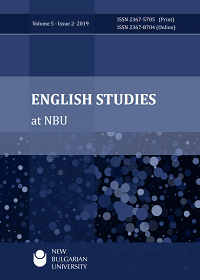The Ageing Poet and Death Anxiety: Art as Existential Therapy in John Pepper Clark’s Of Sleep And Old Age
The Ageing Poet and Death Anxiety: Art as Existential Therapy in John Pepper Clark’s Of Sleep And Old Age
Author(s): Issa Omotosho GarubaSubject(s): Social Sciences, Language studies, Language and Literature Studies, Education, Foreign languages learning, Theoretical Linguistics, Applied Linguistics, Morphology, Lexis, Semantics, Pragmatics, Other Language Literature, Higher Education , Philology, Theory of Literature, Phraseology, Stylistics
Published by: Нов български университет
Keywords: aging; death anxiety; existential therapy; John Pepper Clark; existentialism
Summary/Abstract: Death anxiety refers to the human experience of death awareness and the accompanying inescapable disquiet it provokes. It is a phenomenon in human existence which has attracted substantial studies from existential and psychological perspectives. Noting that every individual experiences this anxiety at some point in life, largely as a result of the awareness of the inevitability of death, the manner and extent to which it is experienced vary from individuals. Meanwhile, existential reflections have described ‘death acceptance’ as the healthy route to lessening this angst. It therefore presupposes that acceptance of death (i.e. knowing that one is a being-towards-death and therefore embracing and acknowledging it) is existentially therapeutic. On this note, in studying J. P. Clark’s Of Sleep and Old Age, artistic creativity is being constructed in the study as an existential therapy against death anxiety for the poetic persona. It is premised, on the one hand, on the poet’s eloquent vision of the boredom of existence and the horror of death which characterize the atmosphere of the text. On the other, the poet’s age has been considered as a factor-agent which has bestowed on him the capacity to be conscious of an imminent death, thereby accepting it via keen reflections in his art. The study adopts two theoretical models in existential studies: (1) Monika Ardelt’s ‘Wisdom’, ‘Religiosity’ and ‘Purpose in Life’ and (2) John Sommers-Flanagan and Rita Sommers-Flanagan’s model of ‘Existential Therapy’ to assess the sway and/or centrality of death anxiety to understanding the text.
Journal: English Studies at NBU
- Issue Year: 5/2019
- Issue No: 2
- Page Range: 268-283
- Page Count: 16
- Language: English

